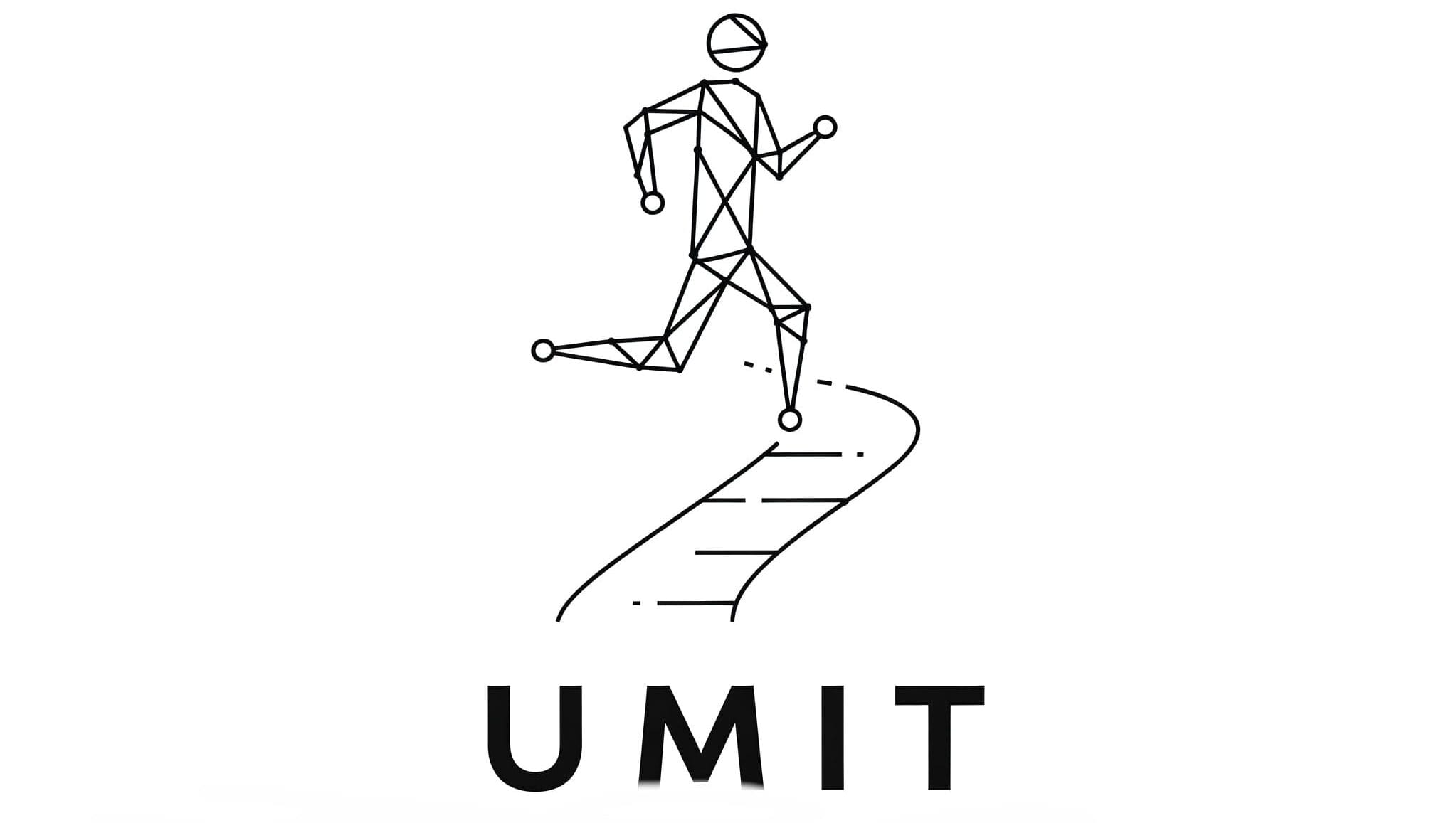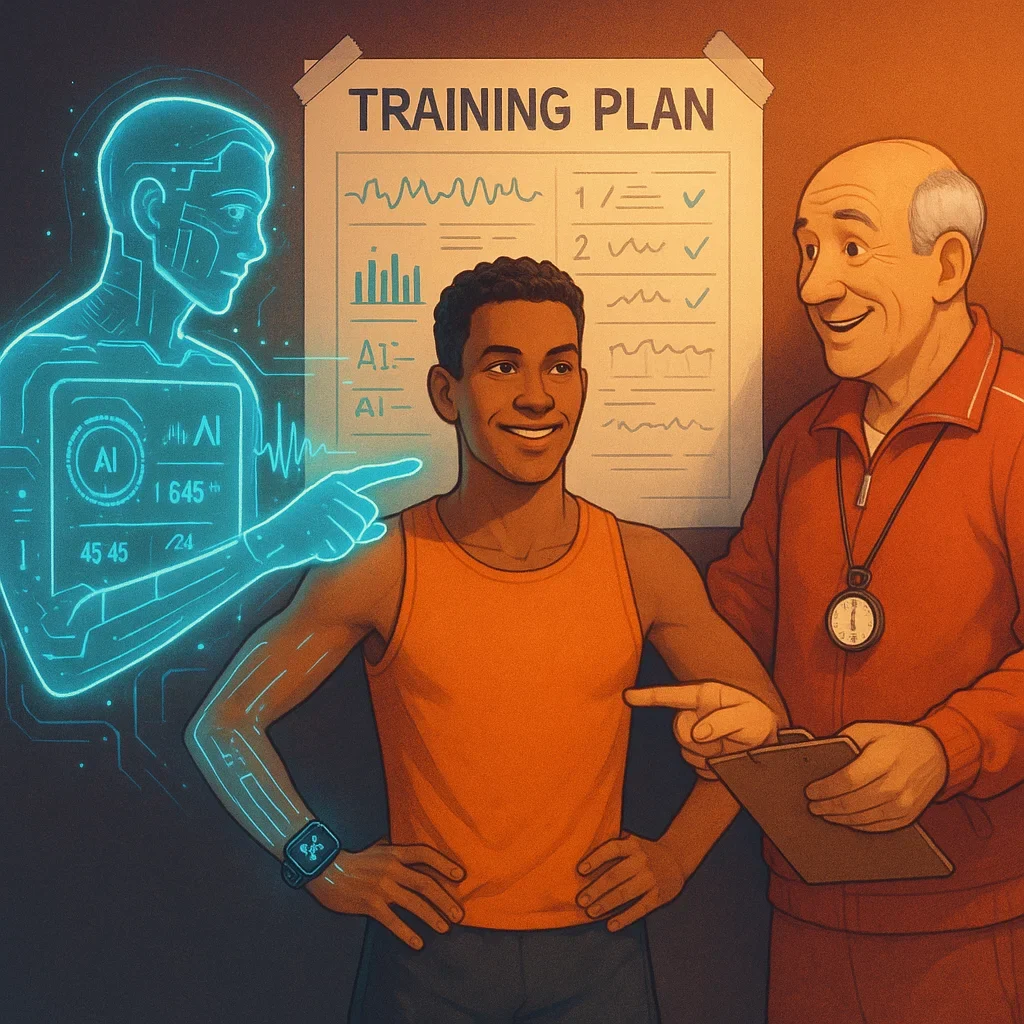AI Coach vs Human: How to Build the Best Hybrid Model for Runners & Ultrarunners
Should you trust an AI running coach, stick with a real person, or get the best of both worlds? In 2025, more and more runners—from 5K beginners to ultramarathon veterans—are finding that “hybrid coaching” delivers both smart data and real-world motivation.
In this guide, you’ll see how a blended approach tackles trust, injury prevention, HRV management, and day-to-day motivation—helping you train smarter and safer, no matter your experience level.
We’ll cover the pros and cons of each method, share practical tips for syncing your tech and coach, and showcase what works best for real runners in 2025.
Ready? Let’s discover how to build your ideal hybrid coaching plan—step by step.
🤝 Strengths & Weaknesses: AI Coaches vs. Human Coaches
| AI Coach | Human Coach |
|---|---|
|
|
3. Why Hybrid Coaching Works Best for Most Runners
Hybrid coaching—combining the data-driven precision of an AI coach with the real-world experience of a human coach—is now seen as the smartest path for most runners, especially in the ultra community. But why does this model deliver the best results?
- Personalized Safety: AI analyzes your HRV, critical power, injury risk, and training load with unmatched speed, instantly flagging danger signs. But a human coach brings context—spotting subtle warning signs or knowing when you simply need a rest or a pep talk.
- Adaptability: AI adapts your running plan daily based on objective data—fatigue, sleep, soreness. The human coach can adapt for life stress, motivation dips, or trust issues that algorithms miss.
- Trust & Motivation: Many runners struggle to trust pure AI plans. The hybrid model keeps you accountable and supported. You get automated feedback, plus a real person to answer questions and build your confidence.
- Best of Both Worlds: With hybrid coaching, you benefit from AI’s consistency and rapid feedback, while also tapping into a coach’s empathy, intuition, and years of experience—especially valuable during injuries or race-week nerves.
Ultimately, hybrid coaching ultra models deliver the best hybrid running plan for most runners. You get the ai coach reliability and instant adjustments—plus the human ability to adapt, inspire, and prevent injuries. In 2025, the top-performing runners aren’t asking “AI coach vs human?”—they’re asking, “How can I blend both for maximum progress and safety?”
4. Step-by-Step: Setting Up Your Hybrid Model
Ready to get the best of both worlds? Whether you’re just starting your running journey or leveling up for your first ultra, building a hybrid running coach model is simpler than you think. Here’s a practical, runner-friendly guide for 2025:
- Pick Your AI Platform: Choose an ai coach app that fits your style—examples include Runna, Athletica.ai, or TrainAsONE. Look for hrv ai training features and critical power ai integration.
- Add a Human Touch: If possible, find a certified coach who’s open to technology. Many now offer affordable, flexible, online support. Search for “hybrid running coach” or ask in running forums (Reddit, Strava) for recommendations.
- Sync Your Data: Connect your watch (Garmin, Coros, Apple, Stryd) and let both the AI and your coach see the same information—heart rate, training load, pace, and injury history.
- Set Clear Roles: Use the AI for daily planning, quick adjustments, and objective feedback. Turn to your human coach for motivation, trust issues, injury prevention tips, and race strategy.
- Communicate Regularly: Share your mood, stress, and “life stuff” with your coach—AI can’t (yet!) read your mind. But let AI crunch the numbers and spot patterns you might miss.
- Review & Adjust: Once a month, review your progress. Are you enjoying the process? Trust both your data and your gut. A great hybrid coaching ultra plan always evolves with you.
Pro Tip: New to all this? Start small—try a free AI trial and join a group chat with a coach before fully committing. Remember, the best hybrid model is the one that feels right for you.
5. Common Scenarios & Real-World Stories
Still unsure? Here’s how hybrid coaching works for real runners—people just like you:
- Beginner Runner: Emily, age 34, was overwhelmed by data and afraid of injury. Her AI coach gave her a daily plan and injury prevention reminders, while her human coach answered questions about nutrition and built her trust. Result? She ran her first 10K—injury free.
- Intermediate Ultrarunner: Mehmet, training for his first 50K, used an AI app for critical power and HRV analytics, but called his coach before big workouts. Together, they adjusted for sleep issues, nerves, and adapted his race-day plan—making the experience safe and enjoyable.
- Elite Example: On Strava, dozens of top marathoners now share hybrid setups: “My AI tracks fatigue and load, my coach helps me stay motivated.” Even Reddit’s r/AdvancedRunning has weekly threads on ai coach vs human—the verdict is clear: blending both is the new normal.
Tip: You don’t need to be an elite. Every runner—at any level—can benefit from a hybrid approach. The best running journeys are personalized, flexible, and built on both trust and technology.
6. Best Apps & Platforms for Hybrid Coaching (2025)
Choosing the right tools is key! Here are some of the top hybrid running coach platforms runners love in 2025:
- Runna: Perfect for beginners—easy interface, human chat support, and AI-adjusted plans for injury prevention.
- Athletica.ai: Advanced analytics for critical power ai, HRV ai training, and automatic sync with coaches.
- TrainAsONE: Customizes your plan daily, highlights risk zones, and lets you connect with human mentors or group coaches.
- TrainingPeaks: Popular among intermediate/elite runners—offers both data dashboards and direct coach messaging.
- Strava + Coach Integration: Use Strava for social/motivation, and connect with a certified coach for feedback and trust.
Remember: The best hybrid running plan is the one you enjoy, stick with, and trust—don’t be afraid to try different options until it clicks!
❓ Frequently Asked Questions: Hybrid Coaching, AI Trust & Injury Prevention
🤖 Is an AI running coach safe for beginners?
👥 Why add a human coach if AI is so advanced?
🔁 How do I sync my AI app with my coach?
🩺 Can hybrid coaching help with injury prevention?
🔓 How can I trust my AI coach’s recommendations?
🌡️ Is HRV really useful for amateur runners?
🏃 Who should NOT use a hybrid coaching model?
💬 Can I just ask ChatGPT about my running plan?
Conclusion & Recommendations: Finding Your Best Hybrid Coaching Mix
In 2025, the debate isn’t really “AI coach vs human”—it’s about combining the unique strengths of both. Whether you’re running your first 5K or chasing a new ultra-marathon PR, a hybrid running coach model can help you:
- Train smarter with data from AI—and adapt with human wisdom.
- Prevent injuries by catching problems early, thanks to HRV AI training and real coach feedback.
- Build trust, stay motivated, and always have support for the tough days.
Pro Tip: Try both for a month. Many platforms offer free trials or community support. Track your mood, motivation, and performance—not just your numbers. The best hybrid coaching ultra plan is the one that fits your lifestyle, personality, and running dreams.
Have questions? Ready to experiment? Start with a trusted AI platform, find a supportive coach, and discover how much better running can feel when you blend science and human touch.

About the Author
Lost Pace is an ultramarathon runner, shoe-tester and the founder of umit.net. Based year-round in Türkiye’s rugged Kaçkar Mountains, he has logged 10,000 + km of technical trail running and completed multiple 50 K–100 K ultras.
Blending mountain grit with data, Lost analyses power (CP 300 W), HRV and nutrition to craft evidence-backed training plans. He has co-written 260 + long-form guides on footwear science, recovery and endurance nutrition, and is a regular beta-tester of AI-driven coaching tools.
When he isn’t chasing PRs or testing midsoles, you’ll find him sharing peer-reviewed research in plain English to help runners train smarter, stay healthier and finish stronger.
Ultrarunner · Data geek · Vegan athlete

